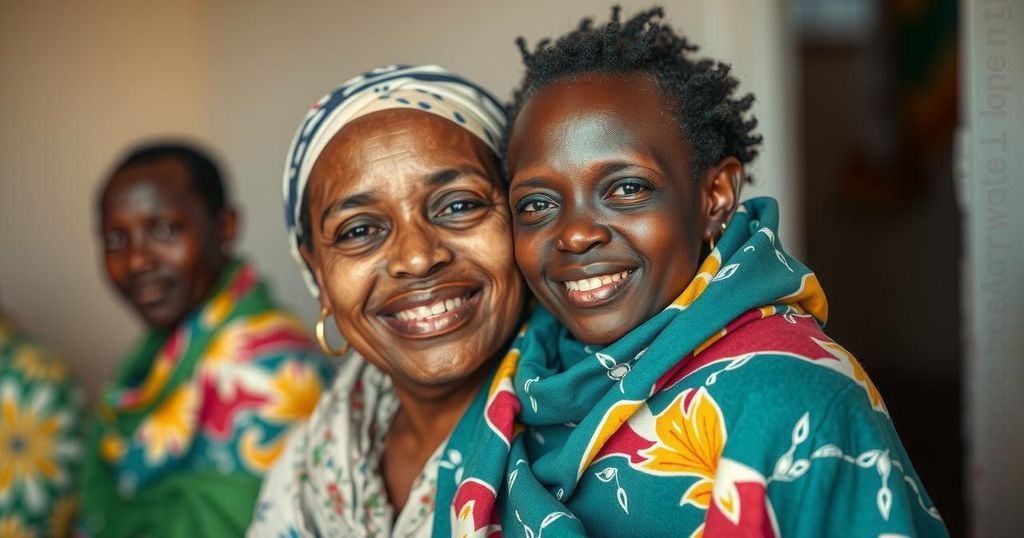Sudan Conflict Intensifies Challenges for South Sudan’s Disability Support Services

South Sudan is experiencing a growing influx of individuals with disabilities due to conflicts in Sudan, straining its limited orthopedic resources. The Physical Rehabilitation Reference Centre provides essential support and rehabilitation for both South Sudanese and refugees, including well-known amputee footballer Ladu Jackson. As more individuals seek assistance, the government is taking steps towards greater inclusion through the ratification of the U.N. Convention on the Rights of Persons with Disabilities.
South Sudan is currently facing a significant challenge as it witnesses an increasing number of individuals living with disabilities, particularly those who are victims of the escalating conflicts in neighboring Sudan. These individuals are seeking essential medical devices like prosthetic limbs, which puts considerable strain on South Sudan’s limited resources, notably its three specialized orthopedic facilities. The country is grappling with the dual burden of its own historical conflicts and the influx of refugees requiring urgent support.
One tragic story is that of Ladu Jackson, a 23-year-old amputee who learned to adapt to his disability after a road accident at the age of nine. Initially, Jackson faced considerable difficulties, losing the ability to play football, his favorite sport. However, he discovered amputee football in 2021 and has since become one of South Sudan’s most recognized players, illustrating the resilience of individuals with disabilities. His journey has been supported by the Physical Rehabilitation Reference Centre in Juba, a facility aiding many South Sudanese and refugees alike.
The Physical Rehabilitation Reference Centre, established with assistance from the International Committee of the Red Cross (ICRC) in 2009, is pivotal in addressing the rising number of individuals in need of prosthetics due to increasing conflicts. Uwar Bosco, the center’s head, acknowledged that the number of clients is growing as conflicts and accidents persist. Adam Ahamed Mohamed, a Sudanese refugee who was shot and subsequently required amputation, is one service user who benefitted from the center’s services, showcasing the urgent need for medical support in the region.
James Ochan, a disability inclusion advisor at the center, reported remarkable data indicating that 2,549 new patients have been registered from January to October of this year, with the numbers expected to rise due to the ongoing crisis in Sudan. The health care system in South Sudan, still in recovery from its own civil war, faces immense pressure from this influx of patients. Mr. Ochan emphasized the importance of not only providing prosthetics but also facilitating societal reintegration for individuals recovering from debilitating injuries.
South Sudan has made significant legislative progress, ratifying the U.N. Convention on the Rights of Persons with Disabilities on February 21, 2023, which underscores its commitment to improving conditions for individuals with disabilities and enhancing their rights to participate in society. The center provides opportunities for sporting events and economic initiatives to empower those with disabilities, helping them regain normalcy and contribute meaningfully to society. Mr. Ochan also noted that the government is working towards enacting a disability act, which is anticipated to further solidify the rights and liberties of persons with disabilities in the region.
The conflict in Sudan has caused a humanitarian crisis that has directly impacted South Sudan, prompting an influx of refugees with disabilities seeking assistance. South Sudan has a limited infrastructure for the rehabilitation of individuals with disabilities, with only a few specialized facilities available. Despite these challenges, the country is taking steps to address the needs of these individuals through international support and local initiatives aimed at promoting inclusion and rehabilitation. The commitment to the U.N. Convention strengthens the framework for promoting the rights and integration of people with disabilities into society, thus enhancing their quality of life.
In summary, the situation in South Sudan is dire as it struggles to accommodate an increasing number of individuals with disabilities due to regional conflicts. With limited medical facilities, the nation is under immense pressure to provide adequate support for both South Sudanese citizens and new refugees. Nonetheless, ongoing initiatives led by organizations like the ICRC and the government’s commitment to international agreements signal a positive step towards improving the lives of individuals living with disabilities, fostering reintegration, and promoting their rights as contributing members of society.
Original Source: www.voanews.com








